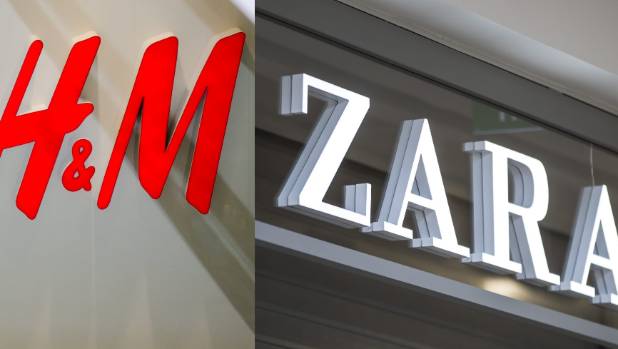(单词翻译:单击)
H&M and Zara Are Closing Stores to Get Ahead
为了获得成功,H&M和Zara开始关店。
Europe's fast fashion giants may have been slow to wake up to the threat posed by e-commerce, but it looks more and more like they have raised their game enough to survive—and maybe even prosper.
欧洲的快时尚巨头可能很晚才意识到电子商务带来的威胁,但是看起来他们越来越像已经把猎物养肥了,足够自己生存下来,甚至繁荣发展。
Hennes & Mauritz, the Swedish company behind H&M, Monki and Weekday, and Spain-based Inditex (owner of Zara and Massimo Dutti) are both seeing the benefits of decisions taken last year to trim their networks of physical stores and throw more resources into online sales.
瑞典公司Hennes&Mauritz(H&M),Monki公司和Weekday公司,以及西班牙的Inditex公司(Zara和Massiomo Dutti的拥有者)都看到了去年做出的决定带来的利益。他们决定削减实体店网络,将更多资源倾向网店。

Eighteen months ago, H&M was still struggling with another makeover of its online store and seemingly hell bent on opening more stores that would never pay for themselves.
18个月以前,H&M还在挣扎着对网店进行改变,并且似乎执意要开更多无法收支平衡的店。
Fast forward to this summer—a tumultuous one for stocks—and H&M has managed to hold on to the 15% gain it made when it announced its most recent quarterly earnings in late June.
很快就到了这个股市动荡的夏天,H&M成功保持了6月末公布的最近的15%的季度收益。
The results were notable for two reasons: one, its summer collections arrived with a bang, with sales rising 12% from a year earlier; second, it said it expected to whittle away its unsold inventory for the fourth quarter in a row, and forecast it would continue falling through the fiscal year-end.
结果引人注目的原因有两个:第一,夏季系列轰动而来,与去年相比销售额增长12%;第二,该公司称计划连续削减第四季度积压库存,并预计在这个财政年末,库存将持续减少。
Shares are now up by one-third from the 14-year low they hit last August.
自去年8月股价创下14年新低后,现在股价上涨了三分之一。


